Compost vs mulch: what's the difference and which is best?
Confused by compost vs mulch? Our guide explains all, so you can make the most of both
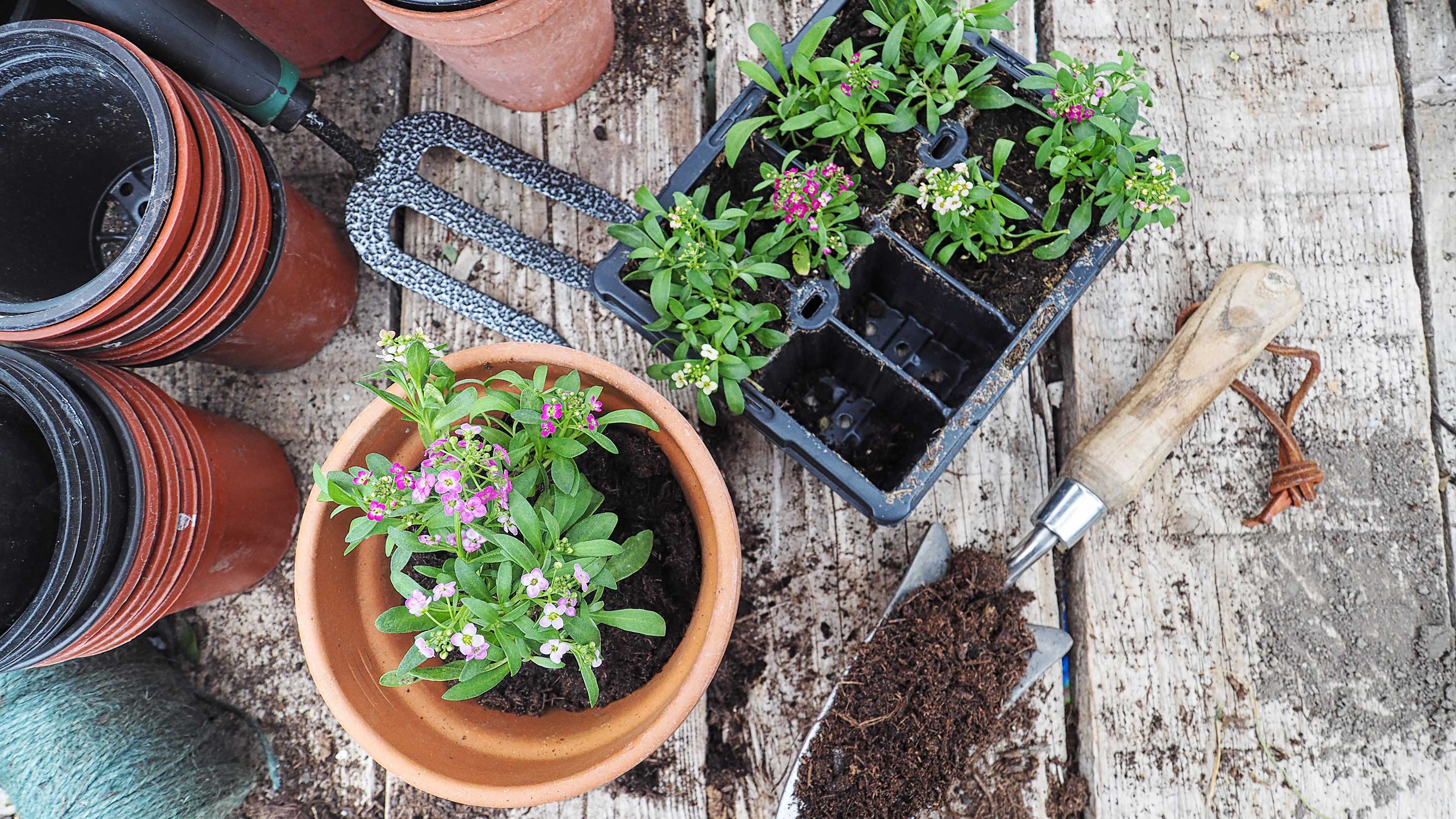

Do you know the difference when it comes to compost vs mulch? Both are used for organic gardening approaches, both give our plots a boost, and both are often (but not always) brown. So it's understandable if you're not exactly sure what defines one from the other.
Whether you've been composting at home or buying it in bags, you'll likely know that the earthy material is jam-packed with nutrients. When worked into topsoil, this helps to create a more plant-friendly growing environment. And although some mulches can break down into the ground and release goodness over time, the key advantages of it lie elsewhere. Because of this, mulches call for a slightly different approach for the most effective results.
To straighten out any confusion once and for all, we've rounded up everything you need to know about compost vs mulch. With these tips, it'll be easy to make the most of both.
Expert advice on compost vs mulch
From what they are to how they should be used – this guide will come in handy if you need a little clarification.
What is mulch?
Mulch is a layer of material added to the surface of the soil. 'Organic mulch has been used since medieval times in the form of good old straw,' says Matt Fieldwick, head gardener at Terlingham Gardens by Pentland Homes, a property developer in Kent, UK. It was tucked beneath strawberry plants to hold the flower bracts of vulnerable developing fruit up in the sunlight and prevent damage from mould and attack from slugs, woodlice and vermin, he explains.
Straw is still used today to mulch strawberries. But there are other advantages to mulching, besides keeping fruit out of harm's way. Its primary uses are to conserve soil moisture during dry weather, as Matt says, and suppress weed infestation. It can also protect plants from cold temperatures, and boost the visual appeal of your garden. And all parts of your plot can benefit – from your raised garden beds to your container displays.
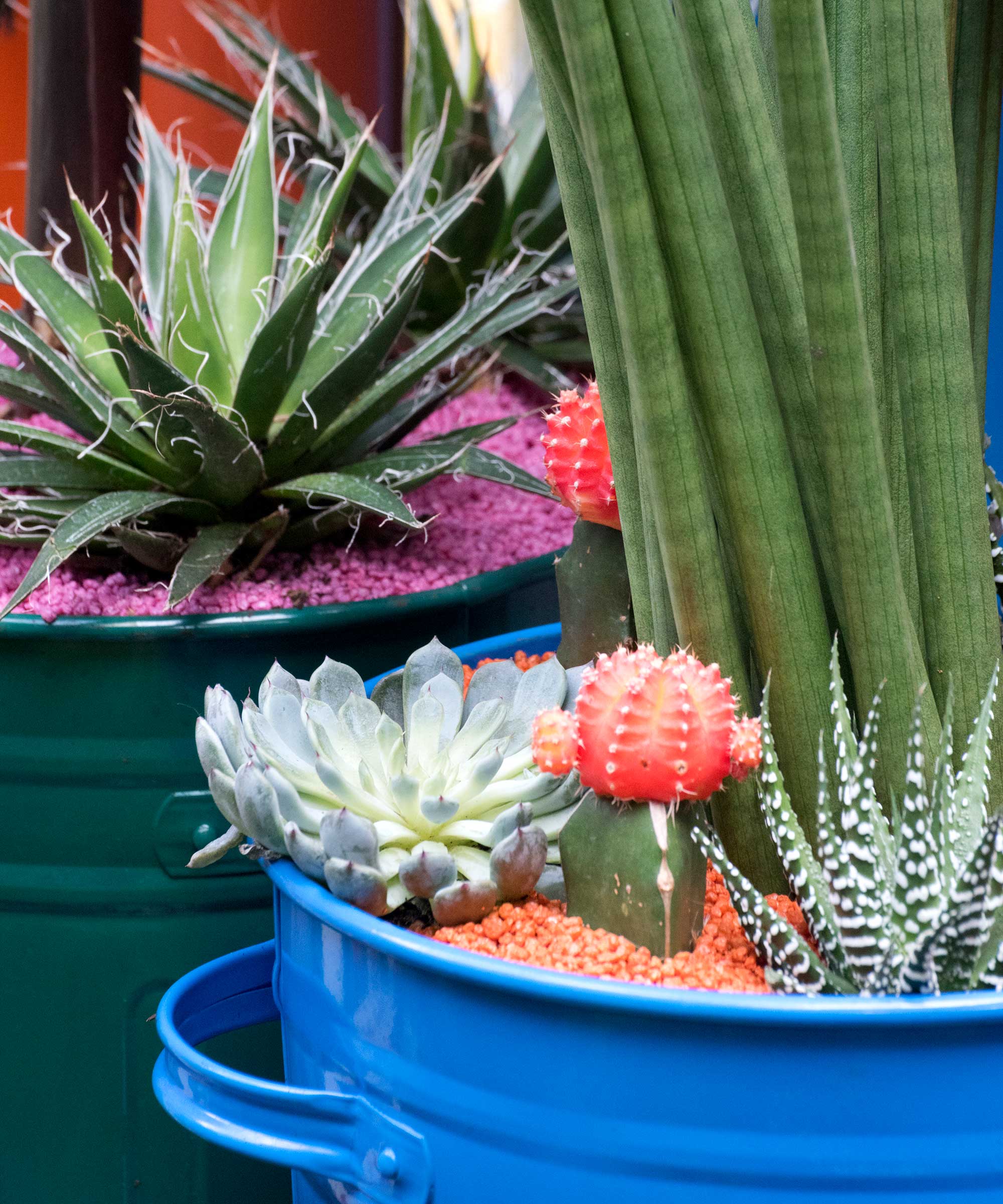
Colorful gravel is used as an eye-catching mulch at the 'Pop Street Garden', designed by John McPherson for Chelsea Flower Show 2021
'Mulches come under two categories: organic, i.e., plant matter, and inorganic, i.e, gravel,' Matt continues.
Organic mulches are things like leaf mould – a fantastic way to use up fallen leaves in autumn (you can find out how to make leaf mould in our guide). Another organic mulch that you're more likely to buy commercially is forest bark – a byproduct of the forestry industry. 'Bark is stripped from the trunks of mainly coniferous trunks before they are milled,' explains Matt. It's 'one of the most expensive mulch products.' For a more affordable option, you can buy mixed bark and woodchip. 'This includes woodchip from tree branches and is more economical for large borders.'
As well as things like stones and gravel, inorganic mulches can include slate chips in colors such as plum, green, gray and black; quartz chips in red, yellow and white; and crushed stone. 'These are ideal for focusing attention on a border or if creating a Japanese style garden,' advises Matt.
'To keep the material clean and stop it mixing into the soil, landscape fabric is laid first.'
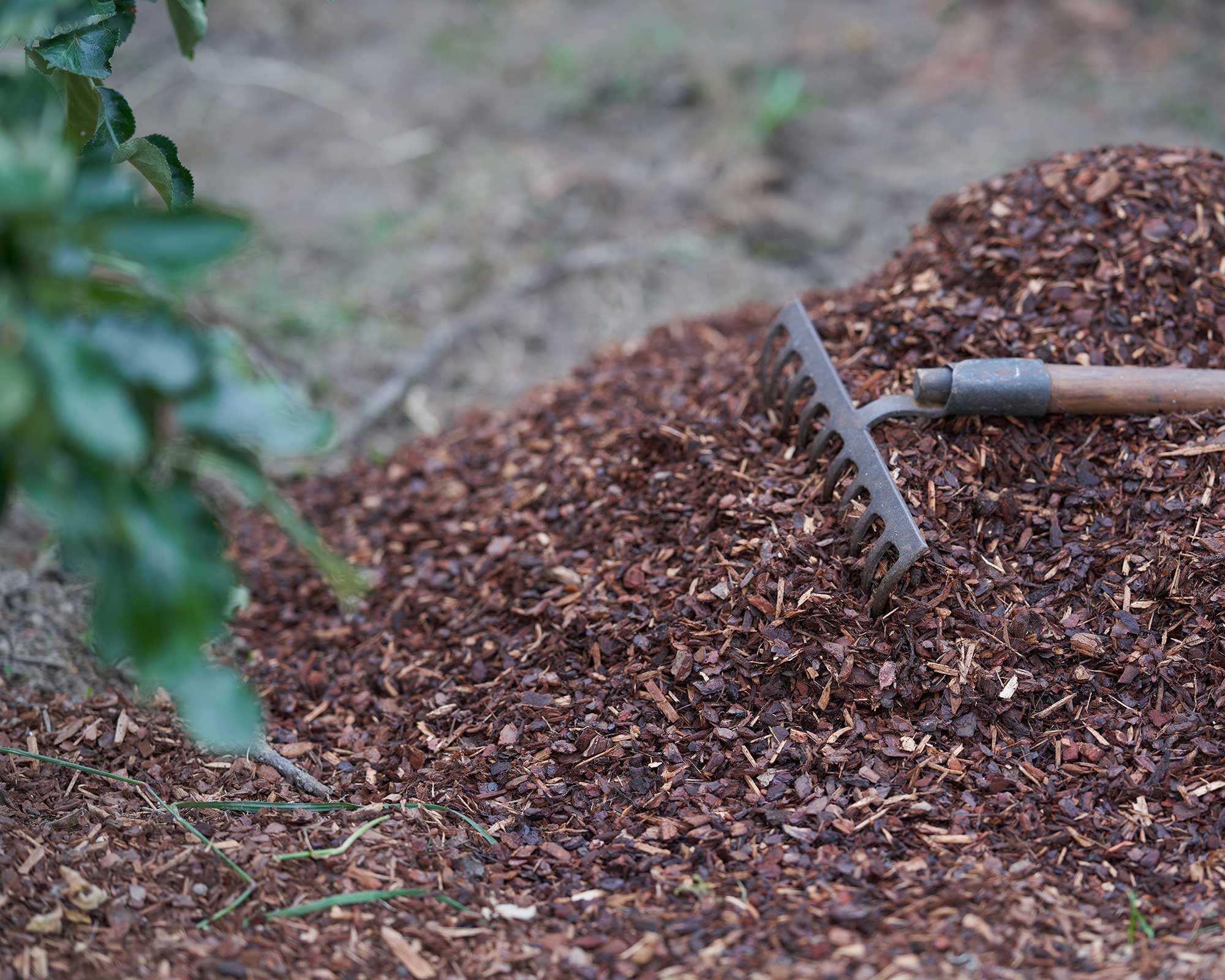
Bark chips are a popular option for mulch
Can mulch be used as compost?
Ideally no, mulch shouldn't be used as compost.
The important thing to remember is that mulch should be used as a top dressing – like a blanket for your soil. This protects the ground from drying out too quickly or getting too cold, and the plants above from weeds.
Compost, on the other hand, is generally mixed into the soil, whether you're sowing seeds in pots or preparing a new border. And whilst mulches can be made from pebbles, or even glass, compost is made from decomposed organic matter and always has an earthy texture – this is why it's so nutrient-dense. Think of it as a soil amendment – not as potent as the granules and liquids you use for fertilizing plants – but a slow releaser of all the good things that growing plants need to thrive.
Of course, mixing glass or pebbles into your borders' soil wouldn't have quite the same effects. However, some natural mulches will release nutrients as they break down over time – although this happens very slowly.
Luckily, it's really easy to make compost at home with one of the best compost bins. Alternatively – and for quicker results – you could give hot composting or worm composting a go.
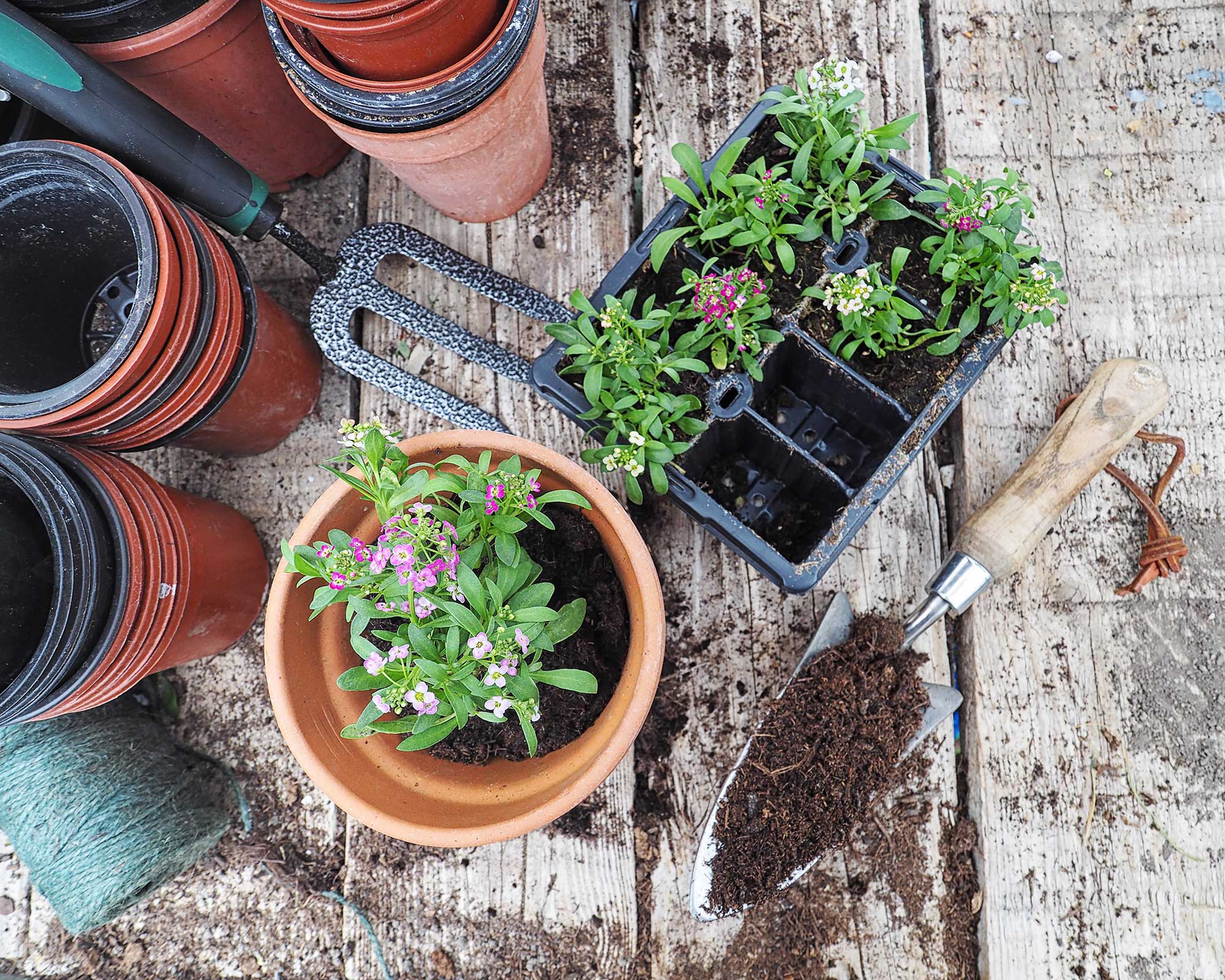
Compost adds nutrients to the soil when potting on plants
Can compost be used as mulch?
What makes things slightly confusing is that compost can actually be used as a nutrient-rich mulch. In fact, as head gardener Matt Fieldwick says, it's 'perhaps the most commercially available mulch due to its dry nature.'
As with all organic mulches, it needs to be applied at least 5cm (2in) and ideally 7.5cm (3in) thick, as says the RHS. You can also work it into the top few inches of soil to prevent it from simply blowing away on the wind, Matt adds. Some gardeners also add a thin layer of shredded leaves on top, which helps to keep the compost beneath (which is prone to drying out) moist.
If you buy yours from a store rather than making it yourself, remember to always opt for peat-free compost where possible. It's much kinder to the environment, as our guide explains.
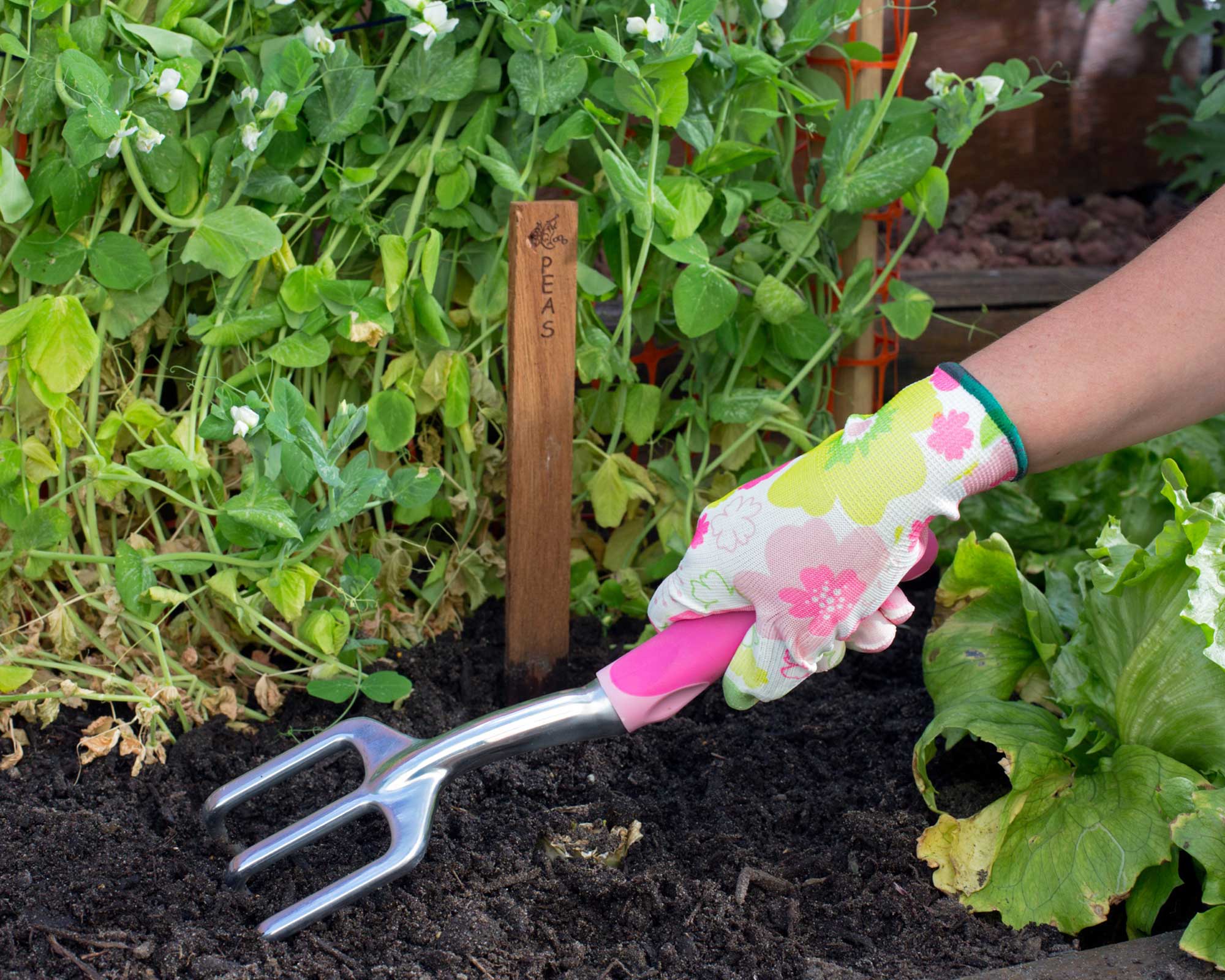
A thick layer of compost can be used as a mulch
Which is best, compost or mulch?
To put it simply, compost vs mulch isn't a case of one being better than the other as they're used for different methods for different things. In fact, for the best results, you'll want to do both.
By using compost and any type of mulch together, you'll get the best of both worlds. So, mix compost into your soil then top it with your protective layer. That way you'll give your plants plenty of nutrients, moisture, and protection whilst increasing your chances of enjoying a beautiful and thriving garden.
Hopefully, by now, you'll know the difference between compost vs mulch. But if you're still feeling perplexed over compost vs topsoil, we've got a separate feature that explains all.

The garden was always a big part of Holly's life growing up, as was the surrounding New Forest where she lived. Her appreciation for the great outdoors has only grown since then. She's been an allotment keeper, a professional gardener, and a botanical illustrator – plants are her passion.
